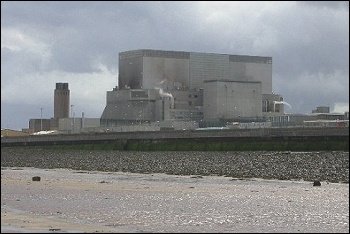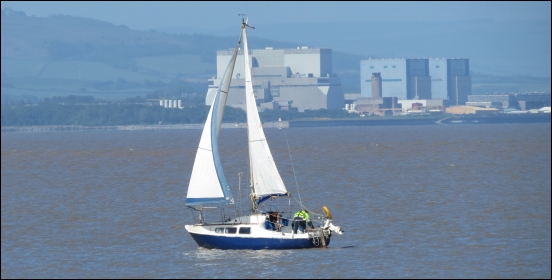Women living downwind from Hinkley Point Nuclear Power Station in the Burnham-On-Sea area are two times more likely of developing breast cancer than the UK average, experts have claimed this week.
The new findings have emerged in a series of scientific studies in which a team looked at the rates of various cancers in populations living close to nuclear power stations across the UK.
These included Hinkley Point near Burnham, Trawsfynydd power station in North Wales and Bradwell in Essex.
They discovered breast cancer rates, in particular, are higher than the national averages at all three sites.
In Somerset, women face double the risk of developing breast cancer, according to the study, which was led by Dr Chris Busby, who is attached to the Latvian Academy of Sciences in Riga.
 “We have studied breast cancer mortality in the wards near the Hinkley Point nuclear site and found a doubling of risk,’ concludes the report.
“We have studied breast cancer mortality in the wards near the Hinkley Point nuclear site and found a doubling of risk,’ concludes the report.
“These results are remarkable and relevant to political decisions about nuclear energy.”
At the Welsh nuclear plant, breast cancer rates are five times higher than expected according to the study, while Bradwell also sees cancer rates being two times higher than the national average.
All three nuclear power plants are managed by Magnox Ltd, a company owned by the Nuclear Decommissioning Authority, which is responsible for the decommissioning and clean-up of the UK’s civil nuclear sites on behalf of the Secretary of State for Energy and Climate Change.
Magnox spokesman Nigel Monckton told Burnham-On-Sea.com: “Comment on the details of the study is a matter for experts in public health. However, the radiation exposures of our workforce, and that of the general public, from authorised discharges from the nuclear industry, are well below the maximum levels authorised by independent regulatory bodies. The limits are set to ensure members of the public are properly protected.”
Dr Jill Meara, Director of PUblic Health England’s Centre for Radiation, Chemical and Environmental Hazards, (CRCE) added: “Identification of disease clusters are matters for local public health teams. If those teams need specialist support, such as in radiation epidemiology, they can talk to CRCE for assistance.”
The full findings have been published in the Jacobs Journal of Epidemiology and Preventative Medicine.







